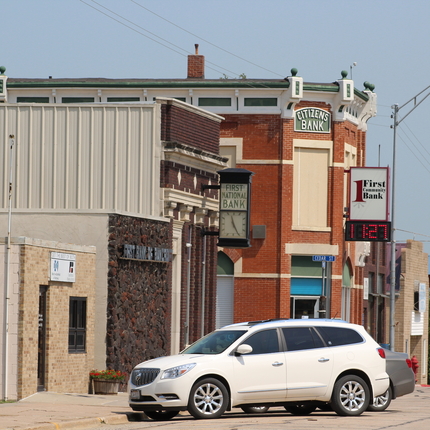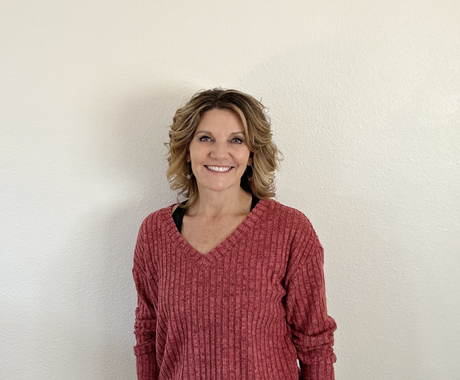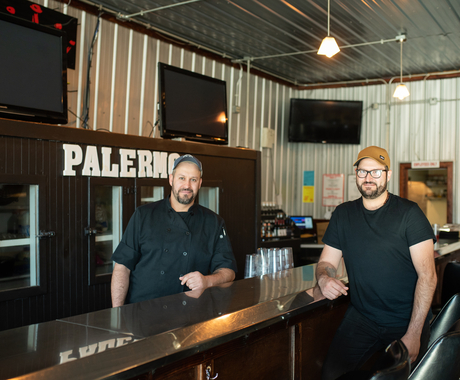Para la versión en español, oprima aquí.
By Griselda Rendon, former staff member. Jessie Eby contributed to this blog.
As a small business owner, you may be a one-person operation, but it doesn’t take long to figure out that relationships are the foundation to success. One important relationship that often goes overlooked is the one you build with your bank.
We know it can be easy to put off opening up a business account or taking the necessary steps to separate your business and personal finances as you’re getting started with your small business. You may think managing a business account will mean extra work or that it may complicate things, but the opposite is true. Creating a dedicated account for your small business is the best way to track your business’s profits and manage expenses. A trusted banker can be a valuable partner that provides guidance and customized financial solutions. Building and maintaining a strong relationship with your bank can benefit your business every step of the way.
What is a “banking relationship” and why does it matter?
While you may think a banking relationship is simply something that happens when you open your accounts, we encourage you to turn that thinking around. Finances are a sensitive subject, and you don’t want to talk about them with just anybody.
Here in rural Nebraska, the banking relationship goes beyond the sterility of black-and-white facts and figures. Having a relationship with your banker is like having neighbors who are always watching out for you. They know you, they know your business, and they’re invested in your success.
Selecting the right banking products
Your banking relationship should feel like working with a trusted business partner; it should be comfortable and trustworthy. A dedicated banker who understands the intricacies of your business can offer solid advice and personalized financial solutions tailored to your unique needs. In a marketplace with a vast and diverse range of banking products available, your banker will be able to help you make the right choice for your business.
Expert advice from a trusted partner
Not a pro at managing cash flow, finance expansion, or optimizing financial strategies? That’s OK. You’ve got a banker who can help you analyze your records and offer suggestions to improve your business’s finances, ultimately empowering you to make confident, informed decisions.
Funding solutions
A strong banking relationship can be a game-changer when it comes to exploring credit or funding options. A banker who is familiar with your business’s financial patterns and potential is more likely to work with you regarding credit and loans. Ultimately, this gives you the flexibility you need to take advantage of opportunities or navigate challenging seasons.
Sometimes bankers aren’t able to lend the money your business needs. If your credit is lacking or compromised, we’re here to help. In addition to lending, we can also provide the resources you need to grow your business, improve your credit, maintain financial health, and beyond. Our small business workshops and resources can help you continue to build the business relationships that will propel your business to success. In some cases, we can partner with your bank to help your business get the funds you need.
Networking opportunities
If you’re a small business owner, you likely already know the value of word-of-mouth marketing. By nature, banks have an extensive network encompassing many industries. When you work closely with your banker, you open the door to networking opportunities, new business relationships, and even new customers.
Creating a banking relationship
The first step in creating a banking relationship is deciding which bank you would like to use. This includes not only researching the types of accounts each bank offers and the benefits and costs of each type of account, but also determining whether you like the bank and the people. Keep in mind, you’ll be working closely with the bank and its employees, so it’s important that you feel comfortable.
Once you’ve selected a bank, set up an appointment to open your account. Be sure to take along all of your business documents: registration, EIN, operating agreement if applicable, etc. If there is more than one business owner, you’ll need an operating agreement so the bank knows who to authorize as signers, each of which will need a driver's license and two forms of ID. Your bank will run the credit for your business to see if you qualify to open an account there.
Maintaining a banking relationship
Like all relationships, the banking relationship hinges on honesty. If there is something you don’t understand, be honest with your banker. Your banker should let you know about the fees associated with the account and will send you home with a printout of the schedule of fees associated with your account. Fees to anticipate include those for monthly service, payroll, and checks. And don’t forget about overdraft fees; they can add up if you aren’t paying close attention to your account.
How secure are banks?
There is always a risk for identity theft, but generally speaking, money at a bank is very safe. Each bank has FDIC insurance on all products up to a certain amount. If you have questions or concerns regarding security, let your banker know. He or she will be able to explain the measures their institution takes to safeguard your account.
Your bank is more than simply a place to keep your money; it’s a powerful partner, invested in your success. By investing in this relationship, you unlock a valuable asset that can serve your business for years to come.





